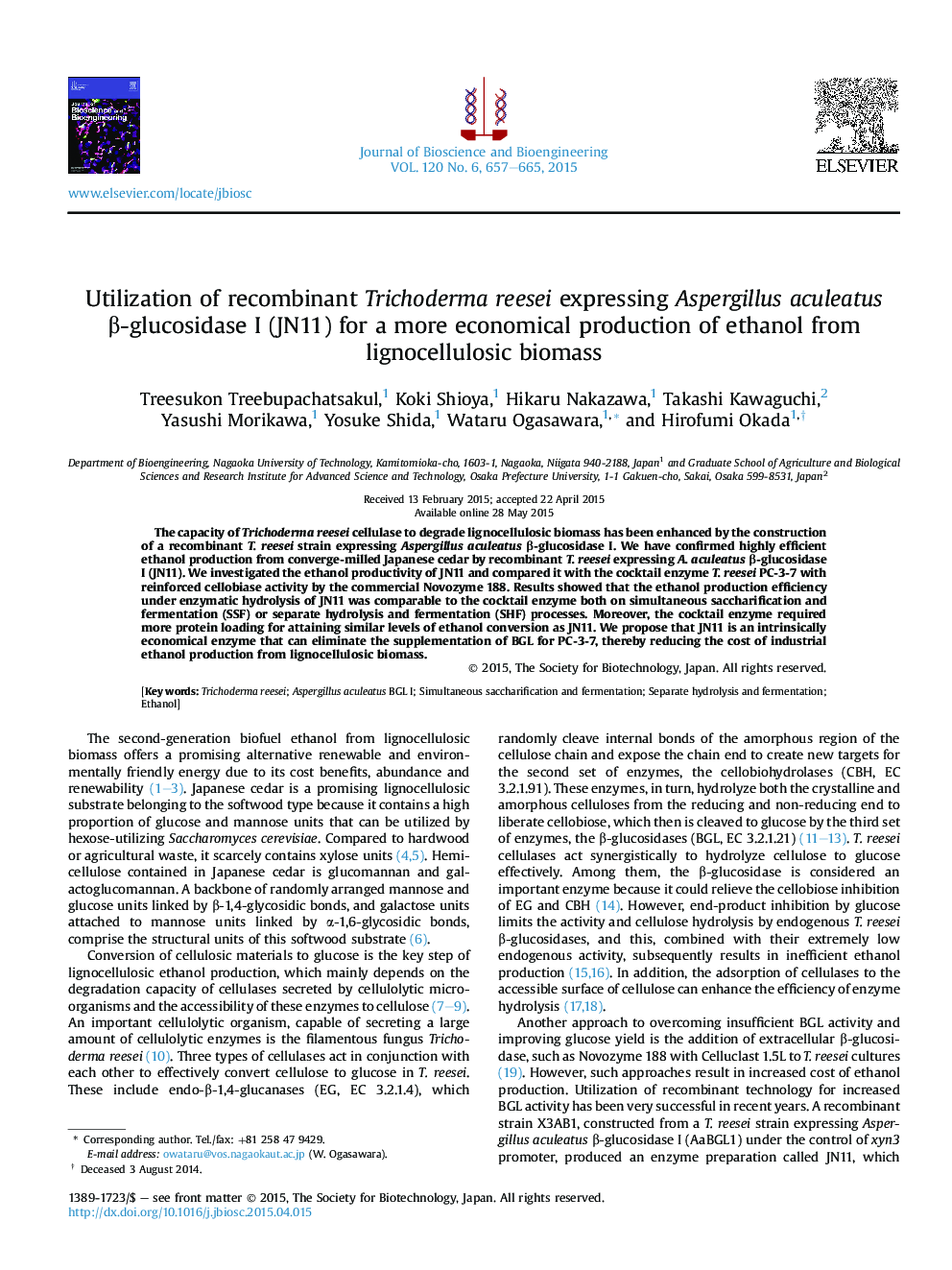| Article ID | Journal | Published Year | Pages | File Type |
|---|---|---|---|---|
| 20054 | Journal of Bioscience and Bioengineering | 2015 | 9 Pages |
The capacity of Trichoderma reesei cellulase to degrade lignocellulosic biomass has been enhanced by the construction of a recombinant T. reesei strain expressing Aspergillus aculeatus β-glucosidase I. We have confirmed highly efficient ethanol production from converge-milled Japanese cedar by recombinant T. reesei expressing A. aculeatus β-glucosidase I (JN11). We investigated the ethanol productivity of JN11 and compared it with the cocktail enzyme T. reesei PC-3-7 with reinforced cellobiase activity by the commercial Novozyme 188. Results showed that the ethanol production efficiency under enzymatic hydrolysis of JN11 was comparable to the cocktail enzyme both on simultaneous saccharification and fermentation (SSF) or separate hydrolysis and fermentation (SHF) processes. Moreover, the cocktail enzyme required more protein loading for attaining similar levels of ethanol conversion as JN11. We propose that JN11 is an intrinsically economical enzyme that can eliminate the supplementation of BGL for PC-3-7, thereby reducing the cost of industrial ethanol production from lignocellulosic biomass.
